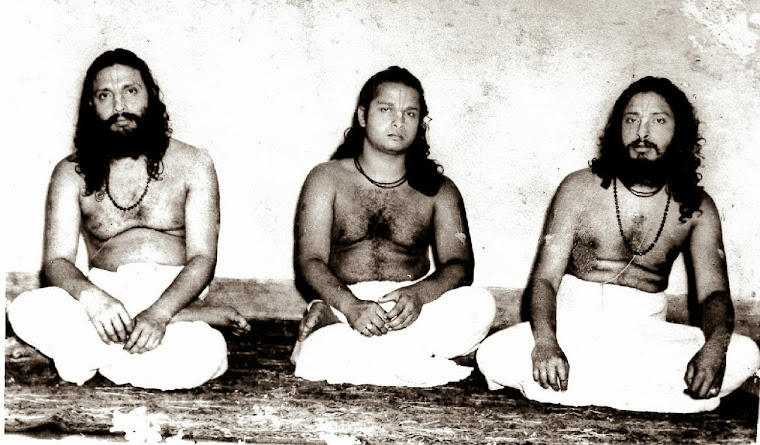Pandit Sundaresha Iyer: What is the Guru’s Grace? Well, this is exactly the word that awakens us from this dream life of ours, to which we cling so hard until the tiger of death pounces on us and proves that it is ephemeral, unreal. What is this wonderful power the True Guru holds?
Man is accustomed to dope himself in sorrow with more and more palliatives; so he finds the more he tries to escape from the quagmire, the deeper into it he is drawn. Out of sheer despair, he goes to some Enlightened Man and asks for help. The Master says: “You feel unhappy because you do not know your Self ”. “How strange!” thinks the bewildered soul. “Do I not know myself? Here I am, and yet I am in sorrow!” “But sorrow and wandering is not your real nature,” the Illuminate replies, “really you are Being and Blissfulness.” “How so?” asks the yet more bewildered soul. With one meaningful look the Master sees deep into the soul of the enquirer.
And lo! What a trance of joy, what a blissful existence, and what a calm this is! The agitated soul is stilled, silent; he sits and sits and sits. Gazing at the Master before him the minutes and hours are hardly noticed gliding softly away. In this way days and months are condensed into a few moments of blissful life. The wanderer has found his harbour; he is all new life and light, so he swears, “For eternity I shall not part from my Master, who is my All!”
Well, for a time he keeps to his resolve. But then the “I” followed by the thought of “mine”, the remnants of his petty being, the past accumulation of tendencies (vasanas), all pull him back with all their force and tear him from his Master’s bosom.
He slides back again into the very dream of life which he had come to abhor. Now he is neither of the world, nor of eternity. Being entrapped by the world’s forces, yet unable to be in harmony with them he returns to his Master for proper guidance in his conduct of worldly affairs. The Master is only too pleased to give him all the help he needs in order to free himself from the meshes that have once again entangled him. The poor man finds that he has to fondle and hug once again the very dolls he formerly abhorred.
But the more he does so, the more they burn him, make him a prisoner; he can neither give them up, nor escape from their clutches. It is like the proverbial monkey with a cobra in its hand, or the ant between two fires. He is only waiting for the least opportunity to wind up his business here and slip away into oblivion, so that he may once and for ever return to the calm of his Master’s presence.
He has indeed come there; but now he finds himself utterly unfit to receive that soothing solace from the Master which was formerly his. The mind and the senses, by their recent association in the things of the world, have so completely exteriorised him that ‘diving in’ has become for him a matter of the past, he can do it no more. So much is this so, that he has now to sell himself, so that in the proximity of the Divine and through It’s Grace, the rebellious and discordant elements of his being may all be harmonised, life that was formerly so dear to him becoming worthless if not for surrender to the Master in absolute self-abnegation.
Now the Master speaks: “People think the Master is confined in a human frame, but it is not so; His existence and presence are universal, cosmic, because He is the True Guru (sad-guru) and Truth (sat) as such is not a newly discoverable entity. He has always been there with you even while you were undergoing all the pangs of existence. In fact, I am the ‘I’ in you; you and I have never been apart, nor ever can be. But you, with your separate ‘I’ and its exclusive and warring interests, could not know Me, much less feel Me. Now that that ‘I’ in you has dropped away, I alone live in you.” This is the meaning of Tattvamasi (“That thou art”), and this is the meaning and the function of the Guru’s Grace.



